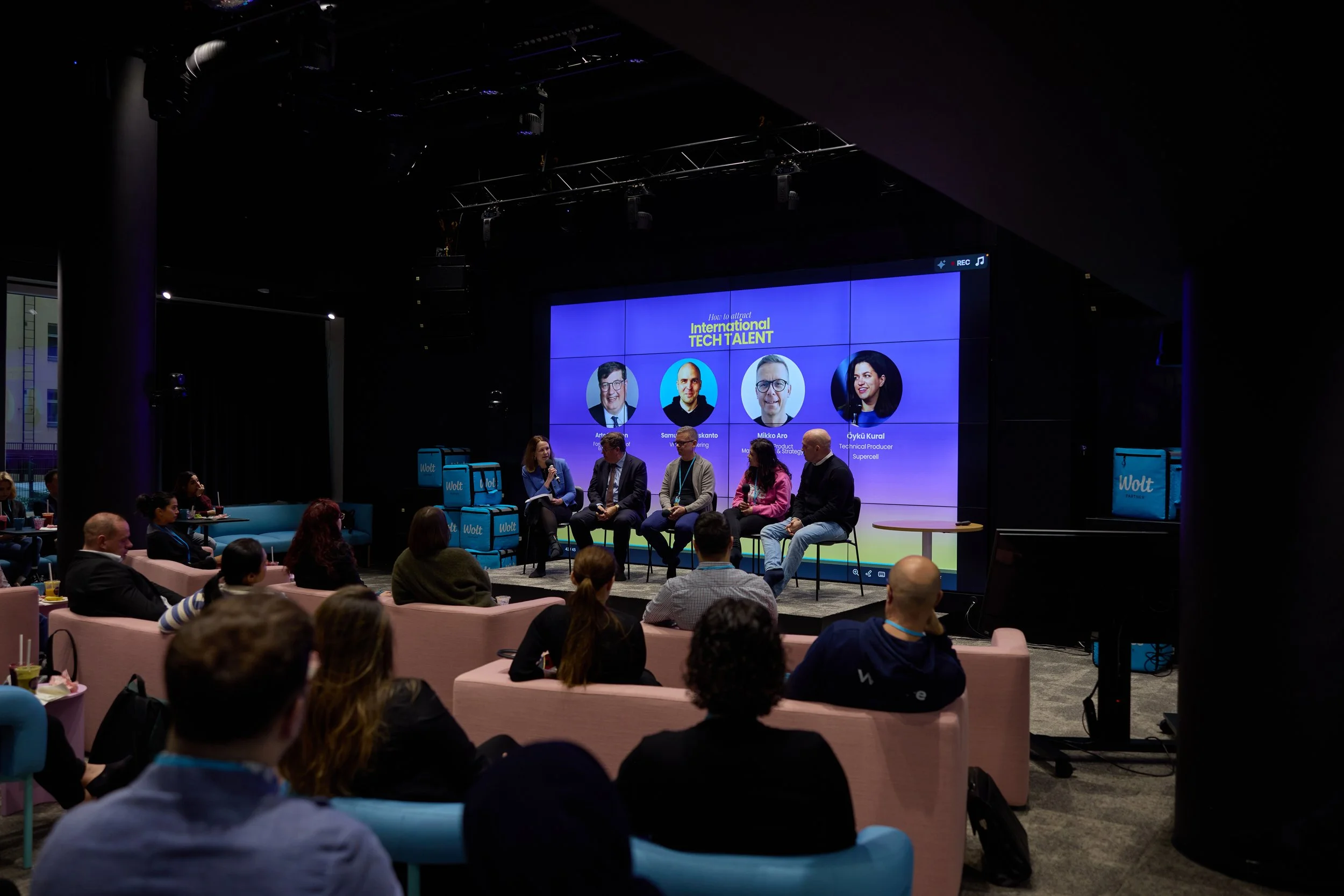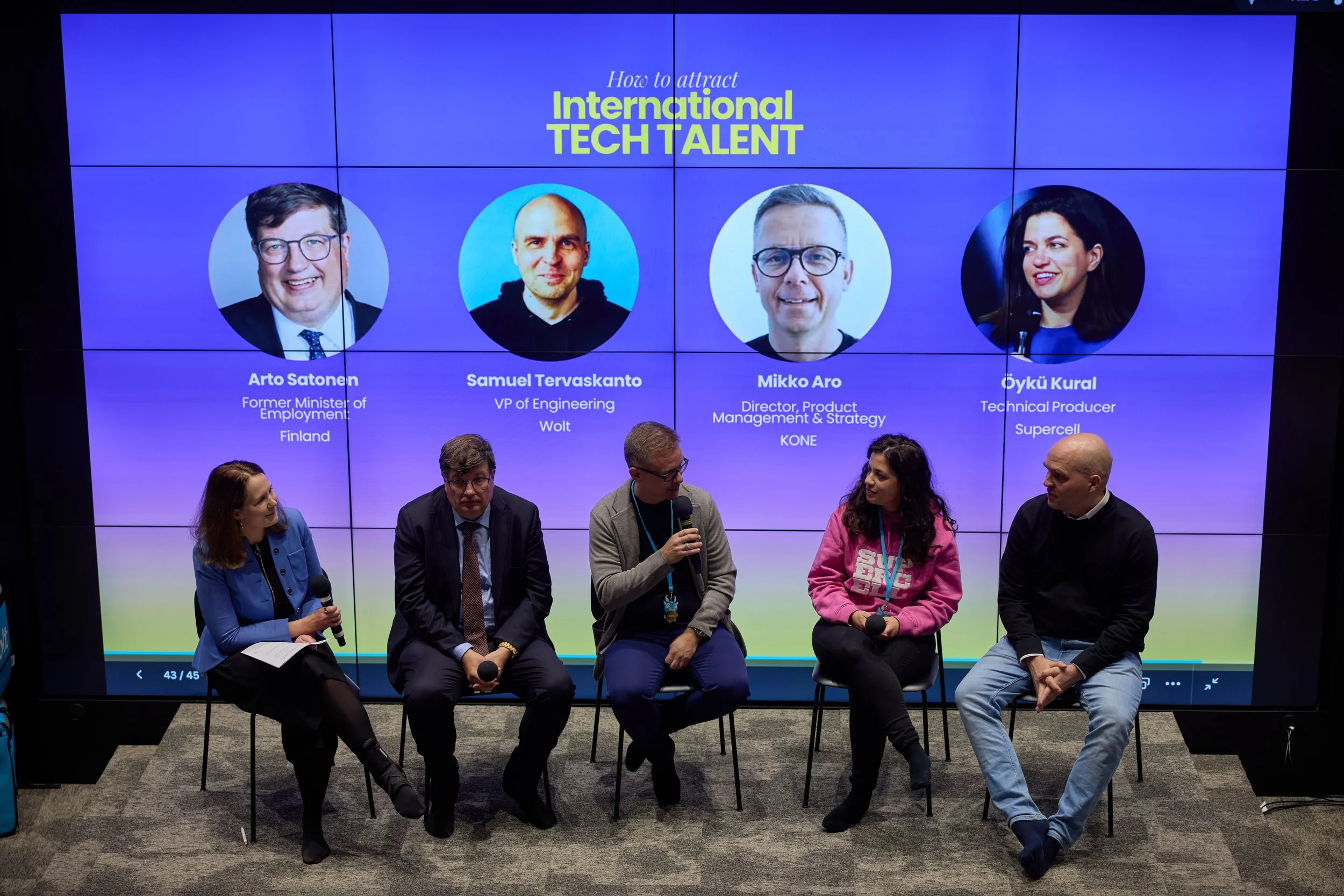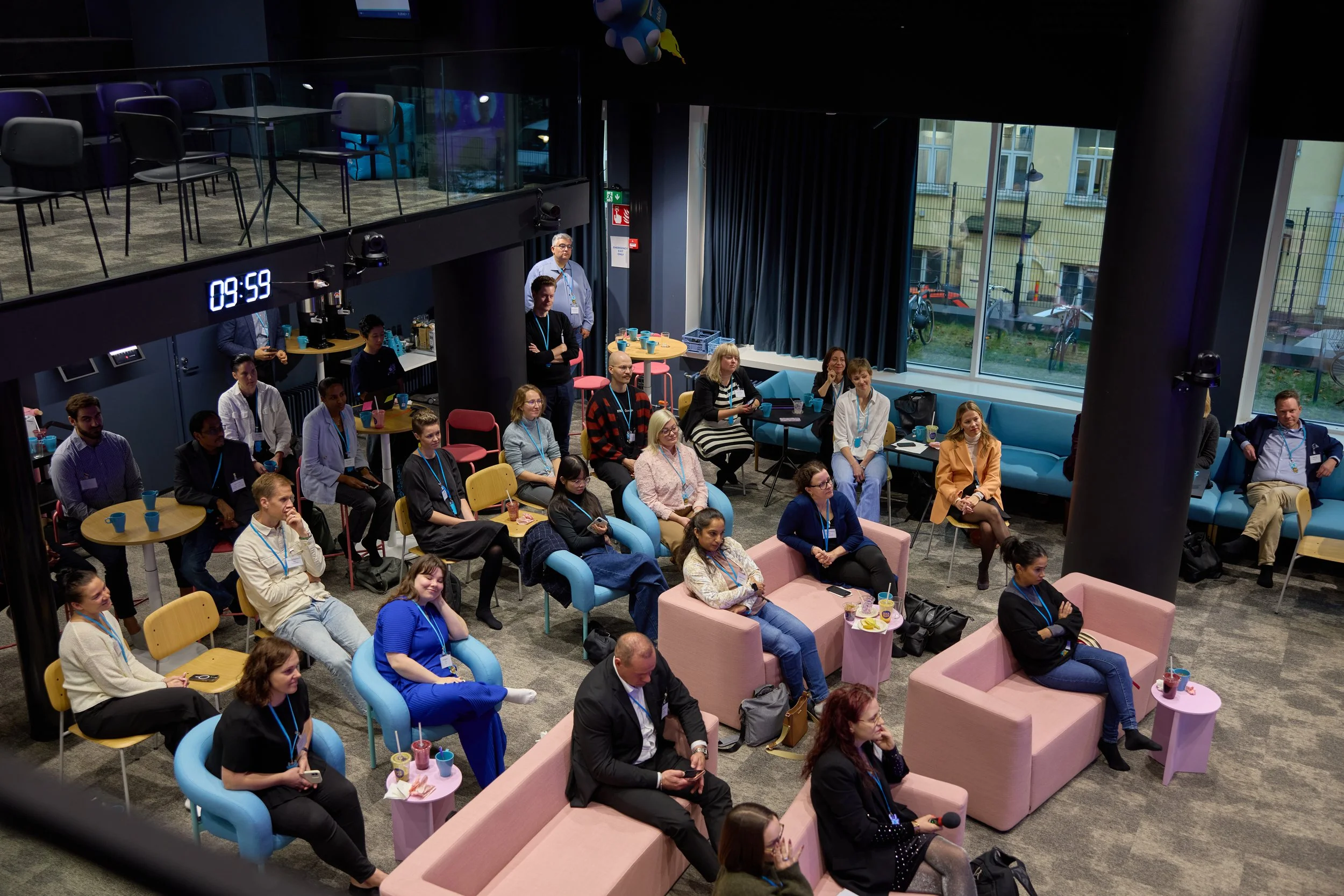Beyond Attraction: Why Finland’s Talent Challenge Is Retention, Not Recruitment
Finland is great at attracting international professionals, but keeping them here is another story. Drawing from insights shared at the International Tech Talent 2025 panel with Wolt, KONE, Supercell, and Finland’s Ministry of Employment, this blog explores what really drives retention.
Finland’s Talent Challenge: Attraction vs Retention
For years, Finland has built a strong reputation for innovation, trust, and work-life balance. We’ve become a magnet for international tech professionals who value stability and purpose. But as Öykü Kural from Supercell put it:
“Deciding to move was easy. But I haven’t decided yet if I’ll stay.”
That comment sums up the reality for many. The pull factors — safety, equality, trust, and quality of life — are great, but they’re hard to experience immediately. Many international professionals start their journey battling bureaucracy and integration challenges like:
helping their spouses and families feel at home,
and understanding how to grow professionally in a new culture.
Samuel Tervaskanto from Wolt reminded the audience that Finland isn’t competing in a vacuum:
“People get to choose: Berlin, Tokyo, Helsinki… It’s up to us to make the choice easier.”
And as Mikko Aro from KONE added:
“You can’t regulate belonging. Retention comes from clarity, predictability, and feeling like a part of something.”
Policy Alone Isn’t Enough: Why Belonging and Predictability Matter
Former Minister of Employment Arto Satonen emphasized that the government is taking steps — from improving tax systems to supporting programs like the Helsinki Spouse Program. But as the panel agreed, policy can only take you so far if the lived experience doesn’t match.
For most people, integration requires more than just paperwork. It’s about life outside of work and whether a spouse can find community, children can settle into school, and families can feel at home.
“People don’t want to just survive, they want to thrive. And that means feeling like they matter, that their work matters, and that they’re part of something bigger,” says Öykü.
Predictability and transparency came up repeatedly: clear relocation processes, straightforward taxation rules, and simple communication in English can make a world of difference for newcomers trying to navigate Finland’s systems.
“People don’t want to just survive, they want to thrive. And that means feeling like they matter, that their work matters, and that they’re part of something bigger.”
Culture & Leadership: The Missing Link in Retention
While policies and programs create the foundation, culture and leadership shape the experience. Finland’s ability to innovate depends on global collaboration, but that requires leaders who know how to turn diversity into strength.
The panelists agreed: leadership is where belonging is either built or broken.
It’s not about replacing Finnish language or culture, but ensuring they don’t become barriers to inclusion.
“Less friction often means less innovation. We need diversity to challenge us. That’s how world-leading products are made,” said Mikko.
For companies, this means doing more than translating internal documents, but also embedding global perspectives into leadership and decision-making. That includes hiring more leaders with international experience, or at least with the mindset to lead multicultural teams effectively.
Language also plays a key role. When English becomes not just accepted but normalised as a working language, it opens doors for international professionals to contribute fully without needing to decode unspoken norms.
As several panelists noted, creating belonging isn’t about grand gestures. It’s about the everyday moments — clear communication, inclusive team rituals, and leaders who take time to listen.
Belonging: The Real Retention Strategy
You can build great policies and world-class infrastructure, but people stay for how they feel.
Belonging is built in every conversation, every leadership decision, every small moment that signals “you matter here.” As Öykü Kural summed it up perfectly:
“People don’t stay because of tax rates or job titles. They stay because they feel they belong.”
For Finland to stay competitive in the global talent market and improve international talent retention, attraction campaigns and relocation programs need to be matched by leadership that champions inclusion, predictability, and belonging at work.



